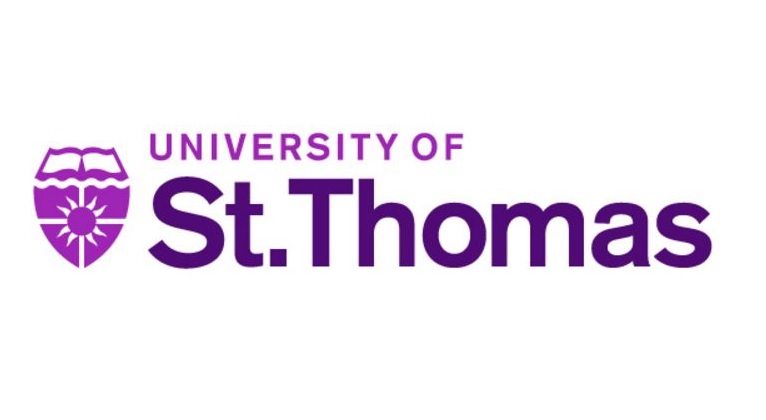After several weeks of public preview performances to test creative ideas, the world-premiere “Purple Rain” musical adaptation officially opened in its finished form Nov. 5.
Like the original 1984 film, the musical — which runs at the State Theatre in downtown Minneapolis through Nov. 23 before producers intend to bring it to Broadway — incorporates plenty of Prince songs.
So during the nearly two years the renowned creative team has been working on developing the musical, they’ve enlisted the help of two longtime Prince collaborators as music advisers: Bobby Z, who was the drummer in Prince’s band The Revolution between 1978 and 1986 and himself appeared in the “Purple Rain” movie; and Morris Hayes, who was a keyboard player in Prince’s subsequent band New Power Generation for about two decades and served as Prince’s musical director for several years.
While the musical was in its preview performance phase, we had the chance to chat by phone with the duo about developing the musical and protecting Prince’s legacy.
This conversation has been condensed and edited for clarity.
Bobby Z, Brownmark & The Revolution performing in the Soundstage on Day 4 of Celebration 2019 at Paisley Park in Chanhassen on April 28, 2019. For the third year in a row, Celebration drew fans from around the world for four days of events at Prince’s studio/residence that was converted into a museum after his death in April 2016. (Steve Parke / The Prince Estate)
Q: What was it like for you to see “Purple Rain” come together onstage as a play during the preview performances, especially after having worked for so long on the project behind the scenes?
Morris Hayes: It was a very cool experience. I just got immersed in it like everyone else, and was just enjoying the show and enjoying what I was seeing. Of course there’s spots where you could say, ‘We could tweak this, or we could do that,’ but by and large, I really enjoyed the experience. I think with a few tweaks, a few minor things here and there, it’s going to be really something special, in my estimation. I like where it’s going.
Q: For you both, as musicians that knew Prince well and played alongside him, how did you approach your role as musical advisers in conversations with the play’s creative team?
Bobby Z: It’s a very good team of folks, and they’ve been very open to whatever Morris and I bring to make it more authentic, certainly musically but also just overall.
Knowing Prince — between Morris and me, I think 35 years of collective Prince knowledge, daily access — we have a unique insight, and certainly the music is what we were brought on to do, to make sure it was at a level that (he would have) approved. And that’s a hard thing to say, but the musical director, Jason Michael Webb, he gained our trust right away as a student of Prince’s music.
Q: That’s a big responsibility on you both, to guard Prince’s legacy and make sure they get it right.
BZ: It is, and we feel it, too. We’re trying to make it better every day, and so far so good. The dancing and music are a huge part of it, and it seems to be connecting with audiences, as Morris said earlier.
MH: Absolutely, 100 percent. What we’re here to try to do is just make sure that the legacy of Prince is protected in terms of the integrity of the music, and I believe that’s been done. As Bobby said, they are going the extra steps to make sure they talk to us, get our opinions. They want to know about the sound. Bobby’s telling them tempos, things that are very minuscule, nuanced things but they make a difference in the musical world, and they’re very interested in all of that.
Related Articles
Review: Prince’s music is the best thing about the ‘Purple Rain’ musical
First look: Five observations from the new ‘Purple Rain’ musical
In new Prince ‘Purple Rain’ musical at the State Theatre, a renowned creative team aims to ‘find the soul of the music’
The Prince jukebox musical ‘Purple Rain’ adds another week of performances
Here’s what to know about the new Prince, Replacements and Hüsker Dü reissues
Q: What are you both up to nowadays besides working on this musical? How can people find your work?
MH: I’ve been doing a series of master classes where I go to universities, colleges, schools and teach students basically what I did with Prince and how they too can get in this business and this life. I had an extraordinary time with Prince, did a lot of amazing things I never dreamed I would do. I’m from a little small town in Arkansas. So what I’m trying to do is let other kids know that if I can do it, anybody can do it.
BZ: I’m working on a series of projects, doing some home renovation, but I’m really enjoying practicing more than I ever have. I’m finding myself spending more time playing drums, and I’m really enjoying just getting back to the elements there. Hopefully the Revolution will do some shows again next year. And I’m a grandfather, too, so I’m enjoying that. Life is full at the moment, and I’m very blessed and grateful.
Q: Yeah, to that point — what do you say to the next generation of musicians who are coming up and have a story to tell? How do you guide them?
MH: I tell them, the more that you know about the industry that you’re in, the better off you’re going to be. Technology is coming fast and furious. … We have a lot of tools, but it also means the industry is very dynamic. It changes very rapidly. So if one wants to keep up, one needs to be on top of these constant changes and trends.
But more than anything, just learn your instrument. Understand your instrument and your ability as a musician. Technology is one thing, but pick up an instrument and really learn it and how to do your own thing … And work ethic. Prince was all about work ethic; he was tenacious about starting things and finishing things. If you want to be successful, I think you really have to master that part of it.
BZ: I couldn’t agree more. It’s work ethic, it’s finishing projects, and it’s dedication. Look at how hard the team in the play is working — that’s the kind of dedication, they’re just putting their heart and soul into it, and that’s what I did and what Morris did playing with Prince. That’s what it takes.
Related Articles
Review: Heart of Children’s Theatre’s ‘Grinch’ grows bigger by the year
‘Living in America’ examines the housing crisis through comedy and real experience
Review: Prince’s music is the best thing about the ‘Purple Rain’ musical
Review: ‘Liberation’ on Broadway is brave enough to ask, what does feminism mean?
Review: Minnesota Opera accentuates the satire in its ‘Così fan tutte’




